You might be aware that chia seeds have become a favored and nutritious supplement in various diets. However, were you aware that they could also induce histamine intolerance?
That’s right, these tiny seeds have the potential to cause uncomfortable symptoms like headaches, hives, and digestive issues in some individuals.
In this article, we’ll explore the risks of consuming chia seeds for those with histamine intolerance and provide alternative options for those looking to avoid these potential reactions.
So let’s dive in and discover how to navigate this dietary challenge together.
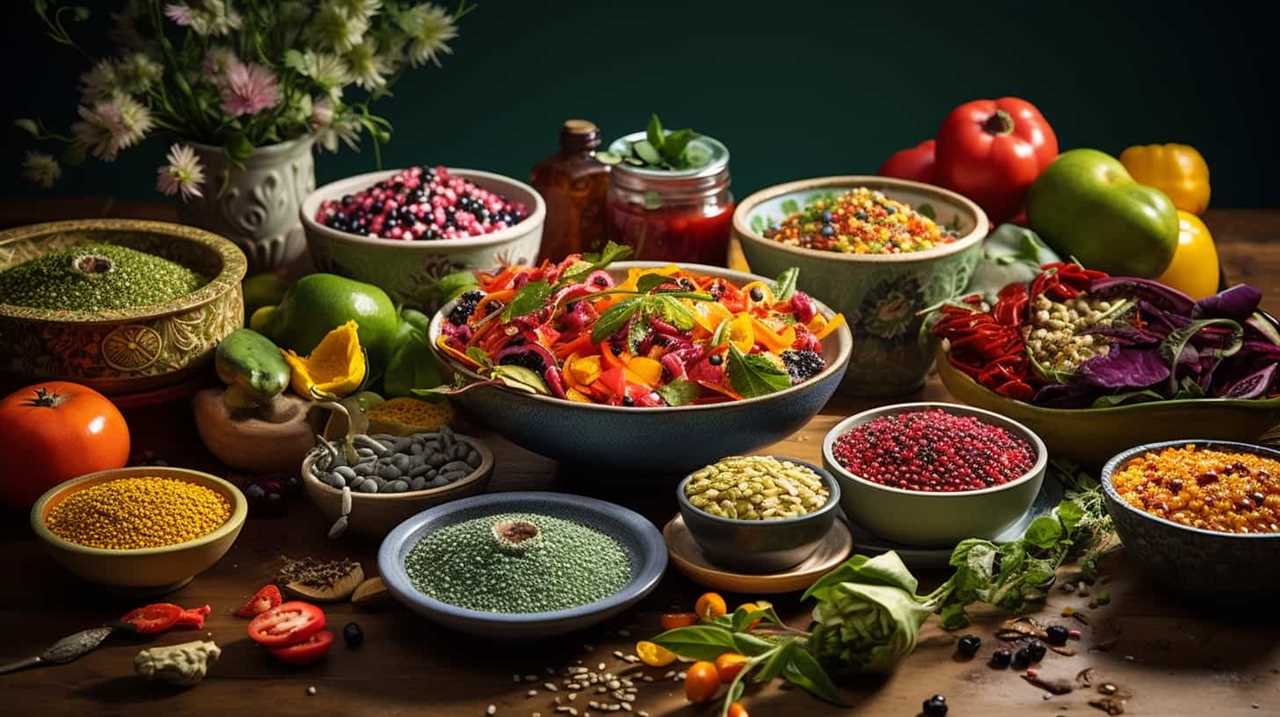
Key Takeaways
- Histamine intolerance is a condition where the body is unable to break down and eliminate histamine properly.
- Following a histamine intolerance diet, which involves avoiding foods high in histamine and those that trigger histamine release, can help alleviate symptoms and improve overall well-being.
- Chia seeds are generally considered safe and nutritious but may pose risks for individuals with histamine intolerance, including digestive discomfort and rare cases of allergic reactions.
- Managing histamine intolerance reactions can involve making dietary modifications, incorporating natural remedies, and consulting with a healthcare professional for personalized guidance.
Understanding Histamine Intolerance
We have found that many individuals with histamine intolerance experience adverse reactions due to the consumption of foods high in histamine or those that trigger the release of histamine in the body.
Histamine intolerance is a condition where the body is unable to break down and eliminate histamine properly, leading to an accumulation of this chemical in the body. The exact causes of histamine intolerance aren’t fully understood, but it’s believed to be due to a combination of genetic factors, enzyme deficiencies, and imbalances in gut health.
To manage histamine intolerance, individuals are often advised to follow a histamine intolerance diet, which involves avoiding foods high in histamine and those that trigger histamine release. This includes fermented foods, aged cheeses, certain fruits and vegetables, and alcoholic beverages. By adhering to a histamine intolerance diet, individuals can help alleviate their symptoms and improve their overall well-being.
Now, let’s explore the potential risks of chia seed consumption.

Potential Risks of Chia Seed Consumption
Continuing our exploration of histamine intolerance and its dietary implications, it’s important to examine the potential risks associated with consuming chia seeds. While chia seeds are generally considered safe and nutritious, they may pose certain risks for individuals with histamine intolerance.
Here are some potential risks to be aware of:
-
Chia seed and digestive issues: Chia seeds are high in fiber, which can be beneficial for digestion. However, some individuals may experience digestive discomfort such as bloating, gas, or abdominal pain when consuming chia seeds. It’s recommended to start with small portions and gradually increase intake to avoid digestive issues.
-
Chia seed and allergic reactions: Although rare, some individuals may be allergic to chia seeds. Allergic reactions can range from mild symptoms like itching or hives to more severe reactions like difficulty breathing or anaphylaxis. If you experience any allergic symptoms after consuming chia seeds, seek medical attention immediately.
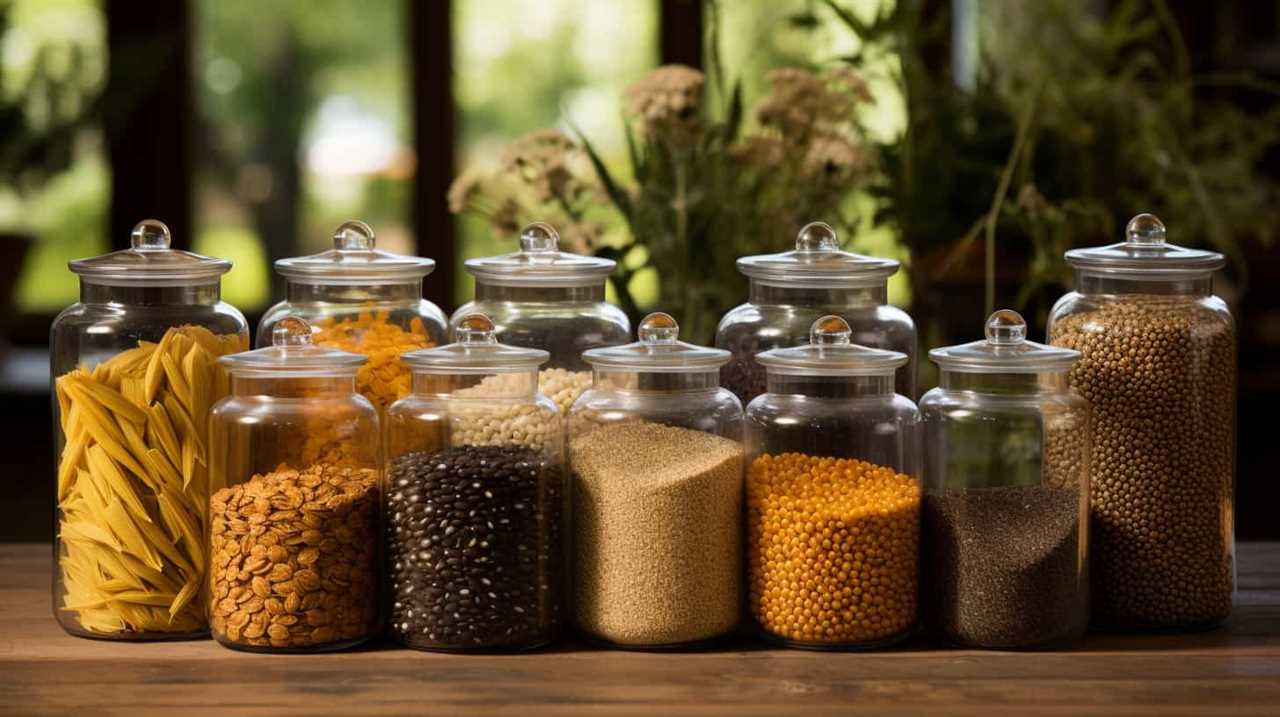
Understanding the potential risks associated with chia seed consumption is important for individuals with histamine intolerance.
Now, let’s delve into the symptoms of histamine intolerance.
Symptoms of Histamine Intolerance
Moving forward, let’s explore the symptoms that can arise from histamine intolerance. Histamine intolerance is a condition that occurs when the body is unable to break down histamine properly, leading to an accumulation of this compound in the body.
Common symptoms of histamine intolerance include headaches, migraines, nasal congestion, sneezing, itching, hives, digestive issues such as diarrhea, abdominal pain, and bloating, as well as respiratory symptoms like wheezing and shortness of breath. These symptoms can vary in severity and may occur immediately or several hours after consuming histamine-rich foods or being exposed to other triggers.
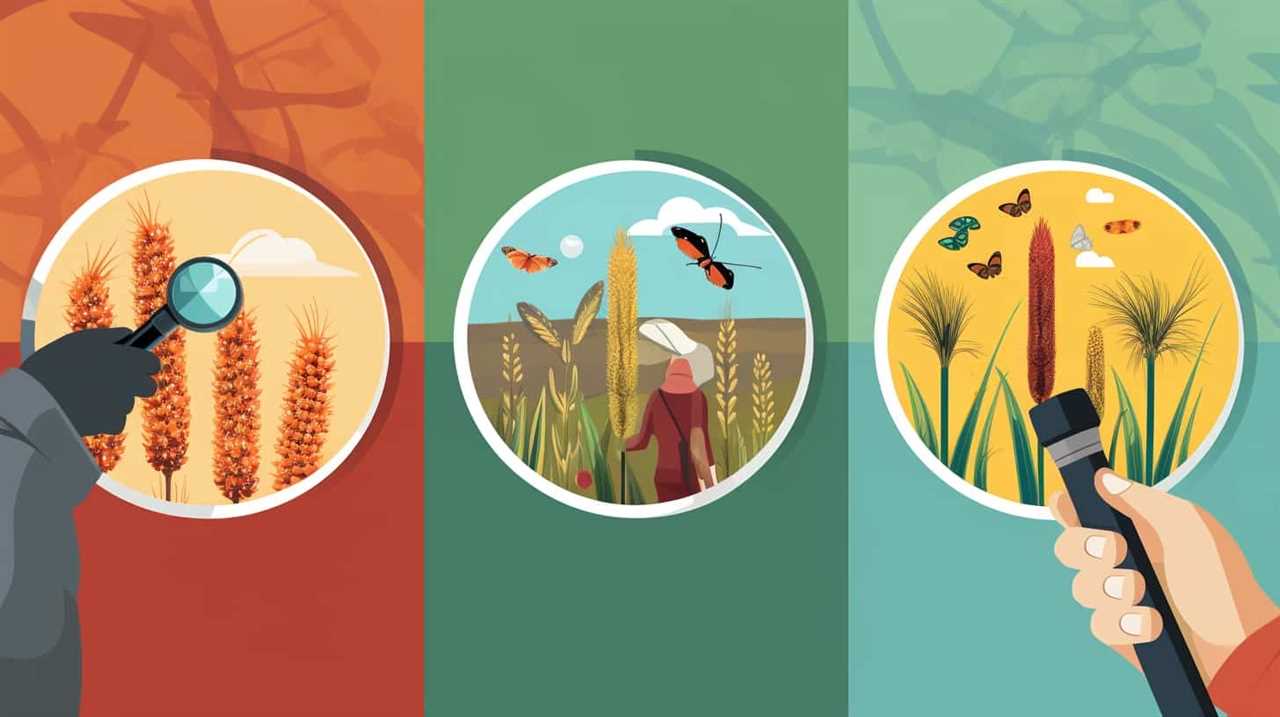
The causes of histamine intolerance can range from genetic factors to certain medications and underlying conditions. Treatment options for histamine intolerance include following a low-histamine diet, taking antihistamines, and addressing any underlying conditions that may contribute to the intolerance.
Understanding the symptoms and causes of histamine intolerance is essential in effectively managing this condition and improving overall well-being. With that in mind, let’s move on to the next section on managing histamine intolerance reactions.
Managing Histamine Intolerance Reactions
Now let’s delve into how we can effectively manage reactions caused by histamine intolerance.
When it comes to managing histamine intolerance reactions, there are several strategies that can be implemented.
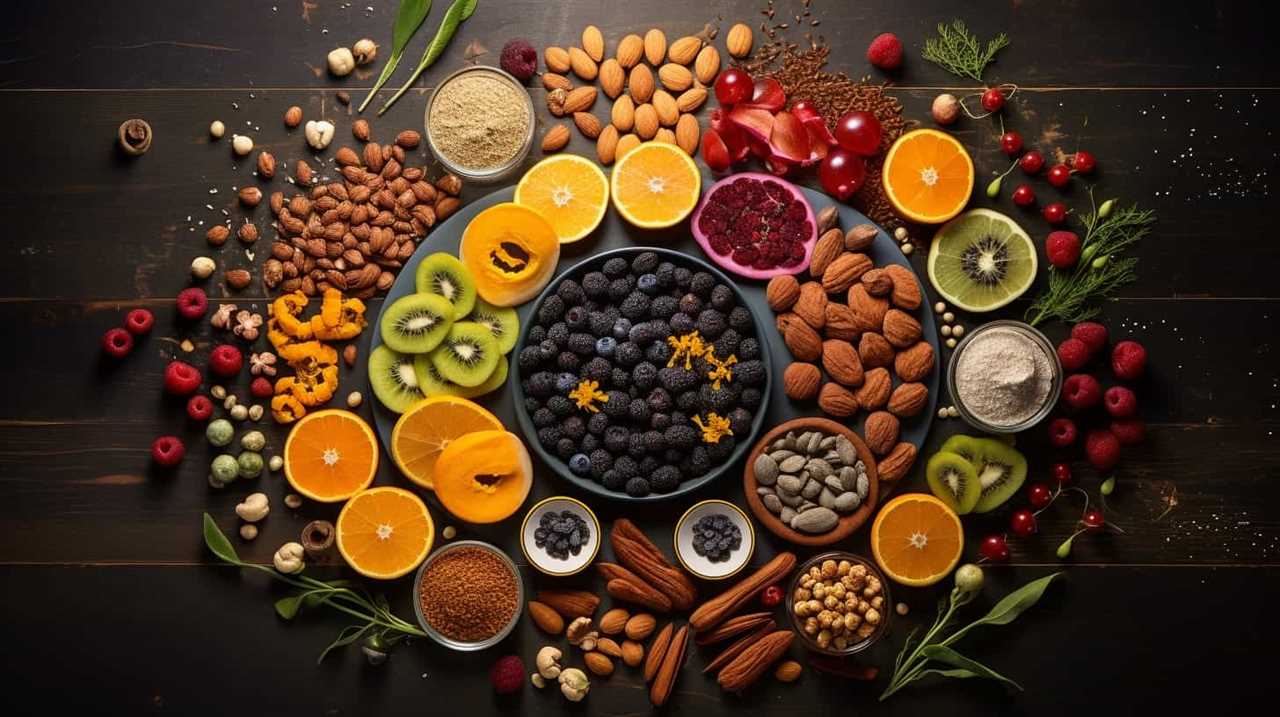
Firstly, making dietary modifications can be crucial in reducing symptoms. This may involve avoiding or limiting foods that are high in histamine, such as aged cheeses, fermented foods, and processed meats.
Secondly, incorporating natural remedies can provide relief. Quercetin, a flavonoid found in certain fruits and vegetables, has been shown to possess antihistamine properties. Additionally, consuming foods rich in vitamin C, such as citrus fruits, can help stabilize mast cells and reduce histamine release.
Lastly, it’s important to consult with a healthcare professional to develop a personalized plan that addresses individual needs and ensures optimal management of histamine intolerance reactions.
Alternative Options for Chia Seed Allergies
To address chia seed allergies, we can explore alternative options that can be incorporated into a histamine intolerance management plan. Chia seed substitutes may be used to provide similar nutritional benefits without triggering allergic reactions.

Flaxseeds can be an excellent alternative as they’re rich in omega-3 fatty acids, fiber, and antioxidants. Hemp seeds are another viable option, offering a good source of protein, healthy fats, and minerals. Pumpkin seeds can also be considered, providing essential nutrients like magnesium, zinc, and iron.
It’s essential to be aware of chia seed allergy symptoms, which may include hives, itching, swelling, digestive issues, and difficulty breathing. By substituting chia seeds with other nutritious alternatives and being mindful of allergy symptoms, individuals with chia seed allergies can still maintain a balanced diet while managing their histamine intolerance effectively.
Frequently Asked Questions
Can Chia Seeds Cause Histamine Intolerance?
Chia seeds are known for their potential weight loss benefits and positive impact on digestive health. However, it is unclear whether they can cause histamine intolerance. Further research is needed to determine any potential link.
Are There Any Other Foods That Can Trigger Histamine Intolerance Besides Chia Seeds?
Certainly! Other common triggers of histamine intolerance include aged cheeses, fermented foods, alcohol, and processed meats. While there is no cure for histamine intolerance, managing symptoms through a low-histamine diet can be helpful.
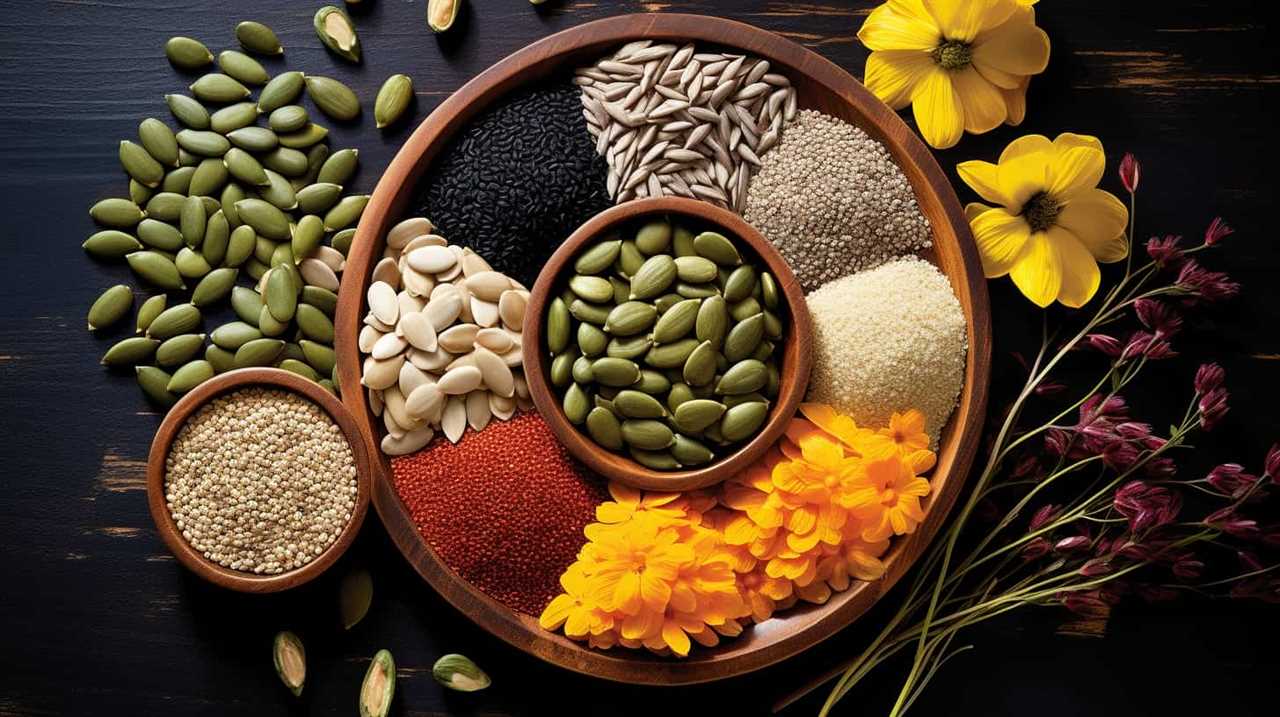
What Are Some Common Symptoms of Histamine Intolerance?
Some common symptoms of histamine intolerance include headaches, nasal congestion, skin rashes, and digestive issues. Understanding the causes of histamine intolerance and the effect of histamine on the body can help manage these symptoms effectively.
How Can Histamine Intolerance Be Managed or Treated?
To manage or treat histamine intolerance, we can explore natural remedies and make dietary changes. These methods can help alleviate symptoms and improve overall well-being. It’s important to find what works best for each individual.
Are There Any Alternative Options for People With Chia Seed Allergies?
There are alternative options for people with chia seed allergies. We can explore chia seed substitutes that are allergen-free. Additionally, it’s important to understand the symptoms of chia seed allergy and how to effectively manage it.
Conclusion
In conclusion, chia seed consumption may pose potential risks for individuals with histamine intolerance. Symptoms of histamine intolerance can range from mild to severe, affecting various systems in the body. Proper management of histamine intolerance reactions is crucial to avoid discomfort and potential health complications.

For those with chia seed allergies, alternative options should be explored. Understanding the intricacies of histamine intolerance and making informed choices can help individuals navigate their dietary choices and maintain optimal health.
















